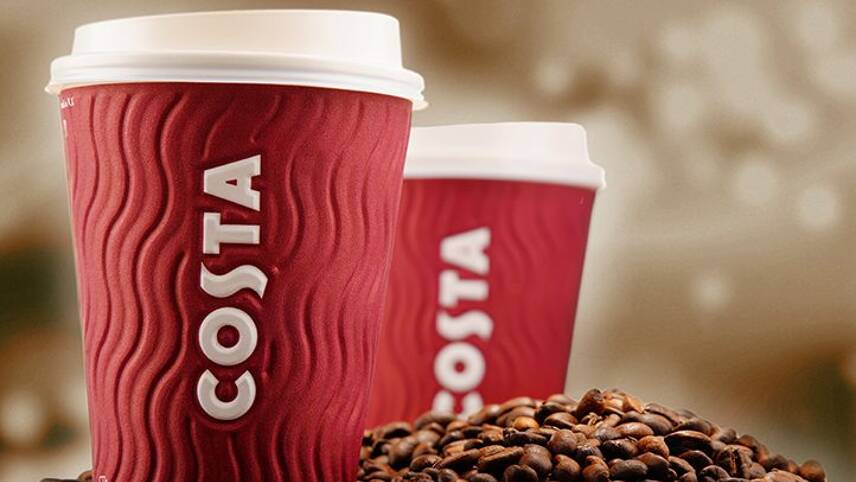Register for free and continue reading
Join our growing army of changemakers and get unlimited access to our premium content

. Available across small, medium, and large takeaway cup sizes, the lids have a 50% lower carbon footprint than polystyrene alternatives.
The company has confirmed it will trial 100% fibre lids in select Costa Express machines across 150 stores this summer. Costa will seek feedback from store team members and consumers.
The new fibre lids are made from renewable plant-based material and have been tested in accordance with the Aticelca 501 method that is used across the EU and UK. Costa has confirmed that the fibre lids can be recycled via outlets that participate in the National Cup Recycling Scheme, with the support of OPRL.
Costa Coffee’s global brand & sustainability director, Deb Caldow, said: “We are working simultaneously on three key areas within our packaging – Reuse, Reduce, Recycle. Our aim is to encourage consumers to adapt reuse regularly, through offering reusable ‘rent a cup’ schemes and by rewarding consumers through an enhanced loyalty scheme, rewarding those opting to reuse.
“However, we know we need to come at this from all angles – and constantly improving single-use material options, as well as maximising cup collection and recycling are all parallel priorities. Last year we launched takeaway cups made from 100% plant-based materials in major markets around the world and have plans to continue to improve the iconic Costa Coffee cup. We are now focusing on single-use lids, moving from polystyrene plastic lids to new fibre lids that are sustainably sourced, made from renewable material and are fully recyclable.”
Net-zero contribution
The company also has a net-zero target in place for 2040. Given that almost 95% of its emissions are indirect, the coffee chain has pledged to ensure all key suppliers have carbon management targets in place by 2023.
The 2040 target is supported by an ambition to halve emissions intensity, on a per-coffee-serving basis, by 2030. A 2019 baseline has been set for this target; in 2019, the average carbon footprint of a cup of Costa coffee was 0.68kg of CO2e.
Costa estimates that it will be able to reduce its absolute emissions from 540,000 tonnes of CO2e in 2019 to 440,000 tonnes in 2030 and 54,000 tonnes in 2040. At that point, it will invest in verified carbon removals to “net” its emissions to zero.
The new lids will build towards this target. Available across small, medium, and large takeaway cup sizes, the lids have a 50% lower carbon footprint than polystyrene alternatives. Costa has also changed the inside linings of its takeaway cups to be plant-based. The cups, now available nationwide, have a 26% lower carbon footprint than Costa Coffee’s previous takeaway cups when recycled.
Last year, Costa introduced a pilot scheme whereby reusable cups are loaned to customers and monitored using a digital blockchain platform.
The trial scheme began across 14 stores in Glasgow in September and will last for six months. It is called BURT – short for borrow, use, reuse and take back.
Under the scheme, customers are required to make a one-off £5 deposit payment and to sign up for a digital BURT account. They are then asked to scan the QR codes located in their chosen store and on the base of the cup they will borrow from the store. This will link the cup to their account using blockchain, which creates a digital ledger. For Costa, the blockchain solution, which is being provided by digital agency Austella, will enable the tracking of cup use. The platform will notably calculate the environmental impact of cup reuse.
The scheme now rewards consumers with a free drink after only four purchases when using a reusable cup, compared to eight purchases in a takeaway cup.


Please login or Register to leave a comment.